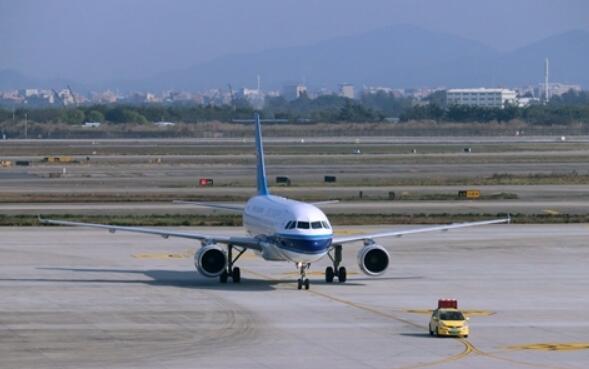
The airport construction fee paid by a plane has been deposited for nearly 30 years, but the basis for the collection of this government fund has been questioned.Zhu Zhengfu, member of the National Committee of the Chinese People's Political Consultative Conference and vice president of the National Law Association, said that he will submit suggestions to the third session of the 13th session of the 13th National Committee of the Chinese People's Political Consultative Conference, calling on the collection of this cost in accordance with the provisions of the legislative law.Essence
The airport construction fee was collected from passengers and airlines from civil flights and airlines since March 1992. The civil aviation development fund collection and use of civil aviation development funds issued by the Ministry of Finance on March 17, 2012 (hereinafter referred to as temporary measures), the name was adjusted to civil aviation development.fund.The temporary method stipulates that passengers take the domestic, international and regional flights (Hong Kong, Macau, and Taiwan) in China, and they should pay the Civil Aviation Development Fund and passengers taking domestic flights 50 yuan per person.Each person is 90 yuan (including 20 yuan in tourism development funds); airlines pay the Civil Aviation Development Fund according to the classification of flight routes, the maximum take -off of the aircraft, the flight mileage, and the applicable collection standards.
The temporary measures are implemented from April 1, 2012, and will be implemented until December 31, 2015.On December 18, 2015, the Ministry of Finance issued a notice to extend its execution period to December 31, 2020.On April 3, 2019, the Executive Meeting of the State Council decided to reduce the standards of the Civil Aviation Development Fund by half.Zhu Zhengfu believes that the behavior of collecting airport construction fees includes the content of the government's levy of the private property of citizens, and according to the provisions of the legislative law, the collection of the private property of the citizens must be formulated, and the law is authorized.Regulations.
Zhu Zhengfu said that the Civil Aviation Development Fund is a government fund, and the income is paid to the Central State Treasury and included in the government budget.It has the characteristics of unpaid and mandatoryness. There are three sources: part of the part of the Chinese citizens or private enterprises, and the private property of Chinese citizens has been transformed into state -owned fund property;Some (tickets and payment documents can be reimbursed in the national budget fund account or state -owned enterprise account); the part of foreign natural persons, legal persons and other organizations, which shows that the behavior of collecting airport construction fees in the name of the Civil Aviation Development Fund involves private ownership of citizensProperty collection.
Zhu Zhengfu analyzed that according to Article 8 of the Legislative Law, the collection and collection of non -state -owned property can only be formulated by the National People's Congress and its Standing Committee.EssenceTherefore, in the absence of the construction fee of the airport without legal regulations, there is no legal basis for the content of the Ministry of Finance and as an administrative regulations. The content of the content of the property of passengers and airlines has no legal basis.Based on the aforementioned analysis, Zhu Zhengfu suggested that the rules and related decisions authorized to collect the construction fee of the airport were reviewed.
The constitutional review system is intended to ensure that the law is consistent with the Constitution, eliminate any normative documents that conflict with the Constitution, and make the lower regulations comply with the upper regulations.Strengthening constitutional review will help establish constitutional authority and protect citizen rights.This system is corrected in accordance with the legal norms of the constitutional review of various levels, and found that local legislation, or the activities of local government agencies at all levels, and the laws of the law are conflicted, and it is corrected.
Article 96 of the Legislative Law stipulates that: law, administrative regulations, local regulations, local regulations, autonomous regulations, and one -line regulations, and regulations are one of the following circumstances, shall change or revoke the relevant authority in accordance with the relevant authority: (1) transcendence of authority; (2)) If the lower law violates the provisions of the upper Law; (3) the provisions of the same matter are inconsistent with the rules and regulations, and the rules shall change or revoke the provisions of one party;; (5) Violation of legal procedures.
Article 99 of the Legislative Law further stipulates that citizens believe that administrative regulations, local regulations, autonomous regulations, and one -line regulations conflict with the Constitution or law, and they can make suggestions for reviewing them in writing to the Standing Committee of the National People's Congress.If necessary, send relevant special committees to review and put forward opinions.Relevant special committees and work agencies of the Standing Committee can actively review the standardized documents of the filing.
In recent years, the constitutional review system has moved forward.The 19th National Congress of the Communist Party of China held in 2017 proposed to strengthen the implementation and supervision of the Constitution, promote constitutional review, and maintain constitutional authority.This is the first time the concept of constitutional review has appeared in the report of the party congress.The Second Plenary Session of the Nineteenth Central Committee proposed to strengthen the implementation of the Constitution and supervision, and provide strong political and institutional guarantees to ensure the implementation of the Constitution.In 2018, the constitutional amendment was passed, and the Legal Committee of the National People's Congress was renamed the Constitution and Legal Committee of the National People's Congress. Observed people believed that the change of this name meets the actual requirements of defending the dignity of the Constitution and ensuring the implementation of the Constitution.


